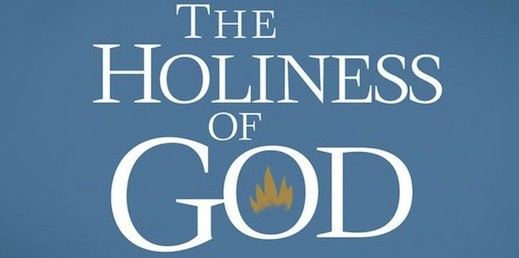Today, in this effort to read some of the classic works of the Christian faith, we come to chapter three of R.C. Sproul’s The Holiness of God. Sproul introduces the chapter this way: “Here we are, already in the third chapter of this book, and I still have not defined what it means to be holy.” So in this week’s reading he tries to move us toward a definition.
Summary
But that is not an easy task. In fact, he says:
I wish I could postpone the task even further. The difficulties involved in defining holiness are vast. There is so much to holiness, and it is so foreign to us that the task seems almost impossible. In a very real sense, the word holy is a foreign word. But even when we run up against foreign words, we hope that a foreign language dictionary can rescue us by providing a clear translation. The problem we face, however, is that the word holy is foreign to all languages. No dictionary is adequate to the task.
One of the difficulties is that the word holy is used in different ways throughout Scripture. At times it points toward pure, at other times it points toward separate and at other times it points toward transcendent. “When the Bible calls God holy, it means primarily that God is transcendentally separate. He is so far above and beyond us that He seems almost totally foreign to us. To be holy is to be ‘other,’ to be different in a special way.” All of which is to say that there is a mystery to holiness. It is so foreign to us that we cannot fully understand it. We can see glimpses of it, but we cannot wrap our minds around it.
I could not adequately summarize all Sproul says about the deeper meanings of the word, so I will leave you to read that on your own. And seriously, if you aren’t reading the book with us, you should at least pick it up and read it on your own.
Having looked at the word, Sproul turns toward the concept, saying “We tend to have mixed feelings about the holy. “There is a sense in which we are at the same time attracted to it and repulsed by it. Something draws us toward it, while at the same time we want to run away from it. We can’t seem to decide which way we want it. Part of us yearns for the holy, while part of us despises it. We can’t live with it, and we can’t live without it.” I think we can all understand that. God’s holiness is both attractive and terrifying. Why? Sproul draws a comparison with death. “[A]s fearsome as death is, it is nothing compared with meeting a holy God. When we encounter Him, the totality of our creatureliness breaks upon us and shatters the myth that we have believed about ourselves, the myth that we are demigods, junior-grade deities who will try to live forever. … When we meet the Absolute, we know immediately that we are not absolute. When we meet the Infinite, we become acutely conscious that we are finite. When we meet the Eternal, we know we are temporal. To meet God is a powerful study in contrasts.”
And one last quote:
We fear God because He is holy. Our fear is not the healthy fear that the Bible encourages us to have. Our fear is the servile fear, a fear born of dread. God is too great for us; He is too awesome. He makes difficult demands on us. He is the Mysterious Stranger who threatens our security. In His presence we quake and tremble. Meeting Him personally may be our greatest trauma.
And that serves as the bridge to next week’s chapter which discusses the trauma of holiness.
Next Week
For next Thursday please read chapter 4, “The Trauma of Holiness.”
Your Turn
The purpose of this program is to read these classic books together. This means that it’s now your turn to offer your thoughts or your questions on this week’s reading. You can do so by leaving a comment here or by posting a link to your own site if you left a comment there. Of course there is no need to say anything. Just read and enjoy if that’s more your style.










